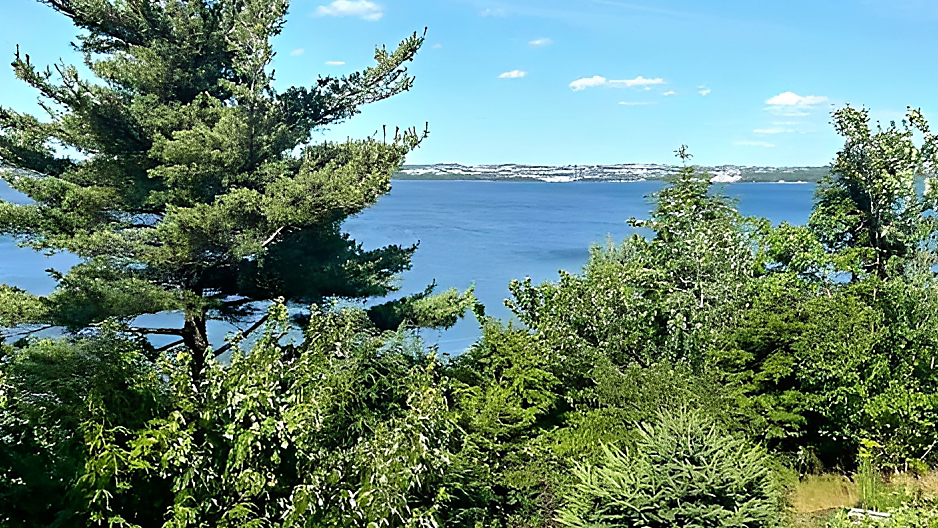Growing up in the eastern Canadian province of Nova Scotia, I spent a lot of time in the woods. Fishing, hunting, camping or just rambling, I was drawn to the forest.
About 75% of Nova Scotia is covered in forest, and about a quarter of that is “crown land”, meaning it is owned by the state. Public access to the woods is baked into the DNA of Nova Scotian culture.
So it came as a shock on 5 August when the provincial government imposed a ban on entering the province’s forests because of the high risk of fire. An eye-popping $25,000 (R442,000) fine is the penalty for violations.
“The province is restricting travel and activities in the woods because continued hot, dry conditions have greatly increased the risk of wildfires,” the government notice said.
“The restrictions, effective as of 4pm today, 5 August, include: hiking, camping, fishing and the use of vehicles in the woods are not permitted; trail systems through woods are off limits; camping is allowed only in campgrounds. These and other measures are in place on provincial crown and private land until 15 October or until conditions allow them to be lifted.”
The neighbouring province of New Brunswick has followed suit and imposed similar restrictions.
Social media is ablaze with anger as the measures have stirred sparks of resentment among the residents of both provinces. This is understandable – banning open fires and smoking in the woods would be sensible. But if you just walk in the bush for whatever reason you are unlikely to start a fire unless you do so with intent.
Nova Scotians love to spend time in the woods and have never been prevented in such a heavy-handed way from doing so – until now.
I asked Alan MacEachern, a noted historian of the region who has written an excellent book on a 19th-century forest fire in New Brunswick, if such measures were unprecedented in eastern Canada. And he replied that for Nova Scotia and New Brunswick, the bans are indeed without precedent.
Read more: The story of a forgotten forest fire stirs sparks of insight and provides hope in the age of Covid
Beyond debates about government overreach, the bans are alarming smoke signals underscoring the severity of our unfolding climate crisis.
The 2025 fire season is the second-worst on record in Canada, only topped so far by the inferno year of 2023 when 17,203,625 hectares burned, according to the Canadian Interagency Forest Fire Centre (CIFFC).
Thus far this season 7.8 million hectares of Canadian land has gone up in smoke, CIFFC data shows. As of 18 August, there were 4,573 recorded wildfires in 2025 and 651 active ones, of which 134 were out of control.
Stark manifestation
In June, the United Nations University in Shibuya, Japan, published an analysis of Canada’s 2025 fire season, and it was unequivocal in its assessment of the cause.
“The fires are a stark manifestation of a warming climate,” the report says.
“Lengthening dry spells and rising temperatures associated with climate change further exacerbate wildfire risk by curating an abundance of dry, flammable fuels… Additionally, warming temperatures can expand the fire season, increasing the window of vulnerability for ignition and fire spread.”
In late June, I was in northern British Columbia for a fly-fishing trip and the region was on fire. At the airport in Fort Nelson, I watched as a massive helicopter lifted off with a long cable attached to a rounded tank of water.
It struck me as ironic that a chopper powered by fossil fuels was being dispatched to douse a blaze caused by fossil fuel consumption.
Another disturbing trend of Canada’s 2025 fire season is its regional reach. The fires raging in BC when I was there were sadly not unusual.
But as a recent Guardian report notes: “... the blazes (in Canada) come with a twist: few are coming from the western provinces, the traditional centre of destruction.
“Instead, the worst of the fires have been concentrated in the prairie provinces and the Atlantic region, with bone-dry conditions upending how Canada responds to a threat that is only likely to grow as the climate warms.”
In his searing 2023 book Fire Weather: A True Story from a Hotter World – which dissects a blaze that tore through the Alberta oil town of Fort McMurray in 2016 – John Vaillant suggests that “there is a case to be made for a revised nomenclature” when it comes to the terminology for our species Homo sapiens.
“I propose Homo flagrans. Flagrans is Latin for ‘ardent, fiery, passionate, outrageous’. In other words, ‘burning man’,” Vaillant writes.
That sums it up.
Certainly as a Nova Scotian – who recalls many a cool and wet summer from my youth – I find that term now is scorching my soul.
Devastating hurricanes that were previously unheard of – a consequence of warming sea surface temperatures – have also left a trail of misery and destruction through the province over the past couple of decades.
Dry, hot summers, ruinous fires and now a ban on entering the beloved forests of my home province? And to compound the misery, not being allowed to go fishing?! That is a spike driven into the heart of Nova Scotian culture.
In the 1980s and 1990s, such a scenario would have been unthinkable, the stuff of dystopian fiction. But in the age of Homo flagrans, dystopia is the new normal as our planet burns. DM





 A coastal strip of Nova Scotia forest on 22 July 2024. (Photo: Ed Stoddard)
A coastal strip of Nova Scotia forest on 22 July 2024. (Photo: Ed Stoddard)